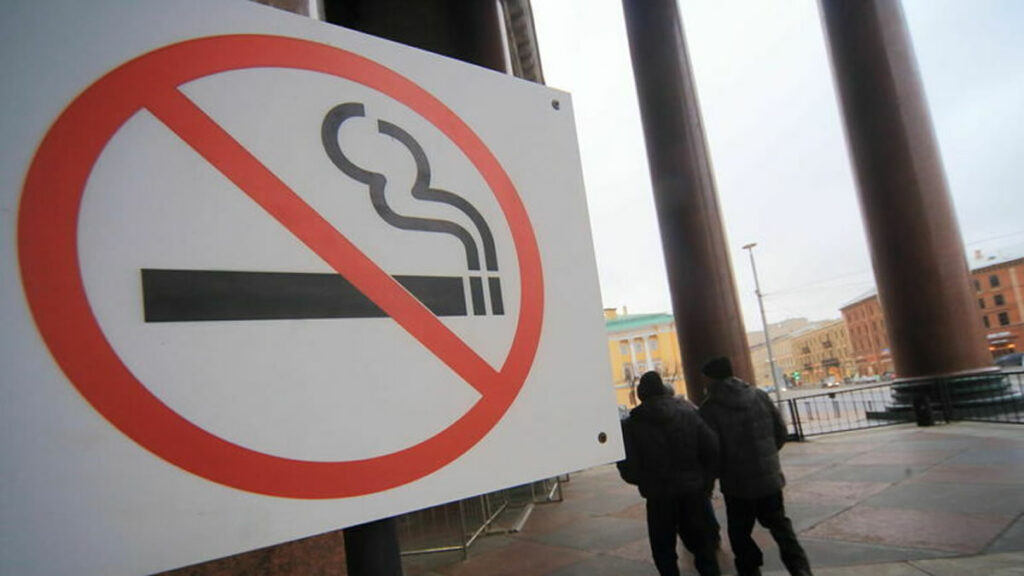The Russian government has moved forward with a complete ban on online advertising for cigarettes and vapes, reinforcing its stance against the digital promotion and sale of nicotine products. While online retail sales of tobacco and nicotine-containing products are already prohibited by law, illegal trade persists. To combat this issue, a new bill passed its first reading in the State Duma on March 19, proposing stricter monitoring obligations for social media platforms and websites.
Under the proposed legislation, social media companies will be required to detect and remove advertisements for cigarettes and vapes proactively. Additionally, websites found violating the regulations could be blocked without court approval, expediting the process of removing illegal sales channels from the internet.
Fast-Track Website Blocking Without Court Approval
The new bill mandates that website and social media platform owners monitor their content and remove any material related to the retail sale of tobacco and vape products. The restrictions will apply to platforms that receive over 500,000 daily visits from Russian users. Websites found in violation will be added to the Unified Register of Prohibited Information by Roskomnadzor (Russia’s media and telecommunications regulator), leading to their immediate blocking.
Lawmakers emphasized that the scale of illegal online tobacco and vape sales has reached alarming levels. Currently, the process of blocking violators through the court system takes a minimum of three months, delaying enforcement. The new extrajudicial blocking mechanism will accelerate the removal of illegal vape and tobacco sales from online platforms.
"Websites, social media platforms, and messaging apps have become major distribution channels for illicit tobacco and nicotine products," stated Aidar Metshin, a co-author of the bill and a member of the State Duma Committee on Competition Protection, during a plenary session. He noted that the government supports the bill, with certain technical adjustments expected before its second reading.
Sergey Boyarsky, Chairman of the Committee on Information Policy, Information Technology, and Communications, described the bill as a logical progression in Russia’s ongoing efforts to combat the illegal online trade of nicotine products.
Expanded Content Restrictions for Online Platforms
In addition to targeting tobacco and vape-related content, the legislation enforces broader content restrictions on platforms with over 500,000 daily users, as outlined in Russia’s Information Law. These regulations prohibit digital platforms from:
- Facilitating criminal activities
- Disclosing state secrets
- Spreading extremist materials or terrorist propaganda
- Promoting pornography, violence, or cruelty
- Publishing content containing obscene language
Furthermore, online content that discredits individuals based on gender, age, race, nationality, language, religion, profession, place of residence, or political beliefs is strictly prohibited.
Website owners are also required to comply with legislative restrictions related to elections and referendums, ensuring that citizens' rights, honor, dignity, and business reputations are protected in all digital content.
Tighter Control Over Gambling, Alcohol Sales, and Civil Unrest Promotion
The legislation also expands social media monitoring requirements to detect and remove content related to:
- Child exploitation and pornography
- Drug manufacturing and distribution
- Suicide methods or encouragement of self-harm
- Illegal gambling and online lotteries
- Retail alcohol sales
- Encouragement of illegal behavior among minors
- Content that disrespects human dignity, morality, and state symbols
- Promotion of non-traditional sexual relationships, pedophilia, gender transition, and anti-natalist ideologies (discouraging childbirth)
- Calls for mass unrest or civil disobedience
- Misinformation that poses a public safety threat
Authorities will also monitor websites to remove content published by foreign or international organizations deemed undesirable within Russia.
Strict Enforcement Against Anti-Childbirth Propaganda
Even smaller websites that do not reach the 500,000 daily user threshold must ensure compliance with Russian digital laws. Spreading content that promotes war, incites racial or religious hatred, or encourages anti-childbirth ideologies (such as "child-free" movements) is strictly prohibited.
Violators of the anti-childbirth propaganda law face severe penalties:
- Individuals can be fined up to 200,000 rubles
- Officials can be fined up to 400,000 rubles
- Legal entities can face fines of up to 4 million rubles or suspension of operations for up to 90 days
Implications for the Global Vape Industry
Russia’s aggressive digital enforcement strategy aligns with global trends where governments are increasing restrictions on online nicotine product sales and advertising. The new regulations place greater responsibility on social media and digital platforms, requiring them to actively police vape-related content and ensure compliance with national laws.
As online enforcement tightens, international vape businesses may face growing challenges in navigating the evolving regulatory landscape, with Russia potentially setting a precedent for stricter global regulations on digital nicotine marketing.

Digital Content Creator & Vape Industry Analyst
Jake Miller is a prominent voice in the American vaping community, known for his transparent, tech-focused approach to harm reduction and hardware innovation. With over six years of experience in the industry, Tyler transitioned from a hobbyist to a full-time content creator, building a loyal following through his unfiltered reviews and deep-dive technical tutorials.




